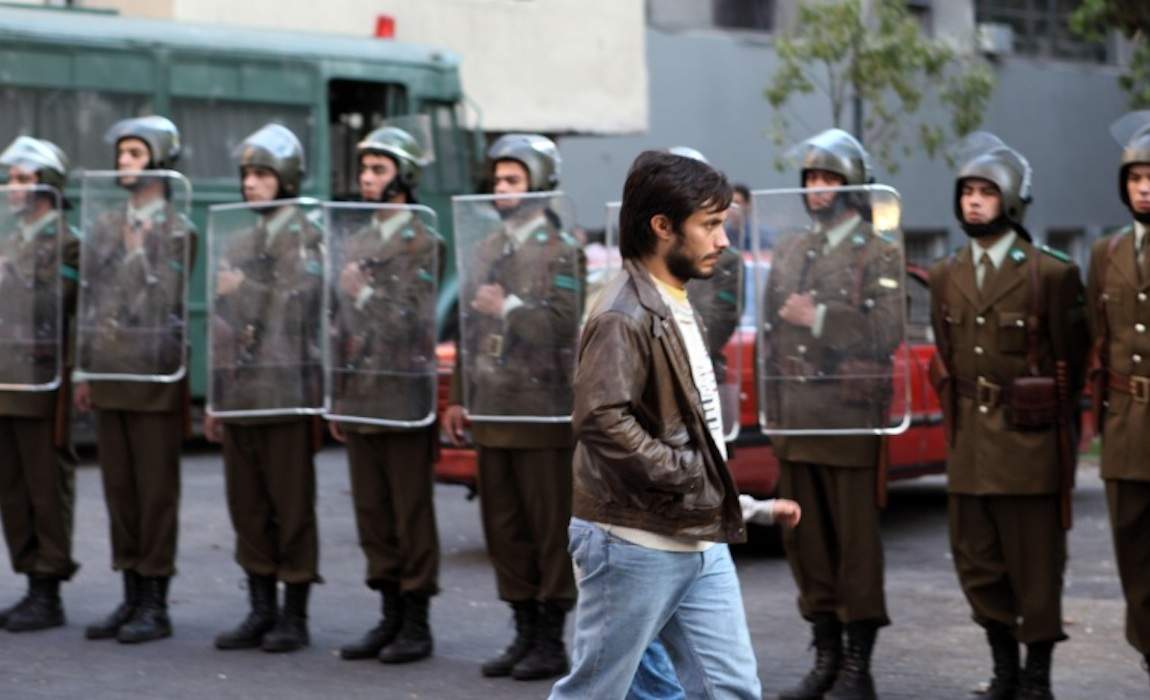No
'No' means 'yes!' in this compelling study of the 1988 referendum that determined Chile's future.
Overview
It is 1988, and 15 years since president Salvador Allende committed suicide as Pinochet's military jets bore down upon the Chilean presidential palace. Under international pressure, Pinochet has agreed to determine his future by referendum.
A 'yes' vote will see the continuation of the torture and 'disappearances' that have characterised his reign (today, over 1000 Chileans remain missing). A 'no' vote will mean the restoration of democracy. For four weeks, each side of the campaign has a daily 15-minute television segment with which to win over voters.
Enter advertising creative Rene Saavedra (Gabriel Garcia Bernal). A composite character pieced together by director Pablo Larrain and scriptwriter Pedro Peirano, he has been raised outside of Chile by his exiled father and is expert at conjuring up slick commercials designed to sell Western-style products. It takes some convincing for socialist politician Urrutia (Luis Gnecco) to shake Rene out of his apolitical apathy and get him on board the no campaign, but once he does so, the action begins in earnest.
No derives its dramatic tension from two sources: the intersection of advertising propaganda and political rhetoric, and the difficulty of reconciliating the private life with the public.
The no campaigners believe that their aim is best achieved through graphic reminders of Pinochet’s brutalities, so Rene must convince them of his strategy: to present post-dictatorship freedom as one would a shiny commodity — symbolised by a rainbow logo, communicated by the slogan 'Happiness Is Coming', and accompanied by a jubilant jingle. Simultaneously, he must navigate his emotions over the departure of his wife, a hardcore activist who sees her husband as lacking courage and conviction.
Bernal approaches Rene's character with an enigmatic composure, conveying his conflicting traits through subtleties — standing stock still amidst an erupting crowd upon announcement of the referendum results, or tearing up in silence as he walks away from his wife's door.
Larrain's exploration of the power of advertising is not without its ironies. On one hand, we celebrate Rene's backing of justice; on the other, the success of his commercial-style simplification of a complex political situation is disturbing. Larrain touches on this uneasy contradiction through staccato stabs of humour, masterfully interwoven with darker moments. It is worth noting that a recent New York Times article revealed that the film has attracted criticism in Chile for downplaying the significance of the grassroots movement to the no campaign.
Seeking an aesthetic reflective of the period, Larrain recorded No with a 1983 U-matic video camera. Flares and flashes are included deliberately. Archival material blends seamlessly with contemporary footage. Some may find this approach a little self-conscious, and it's certainly not pretty, but the intention is to transport viewers back in time.
The third feature in Larrain's filmic study of Chile, No is a triumph, historically and dramatically. Sure, its verisimilitude may be questionable, but its study of at least one aspect of the referendum that toppled Pinochet is compelling.





